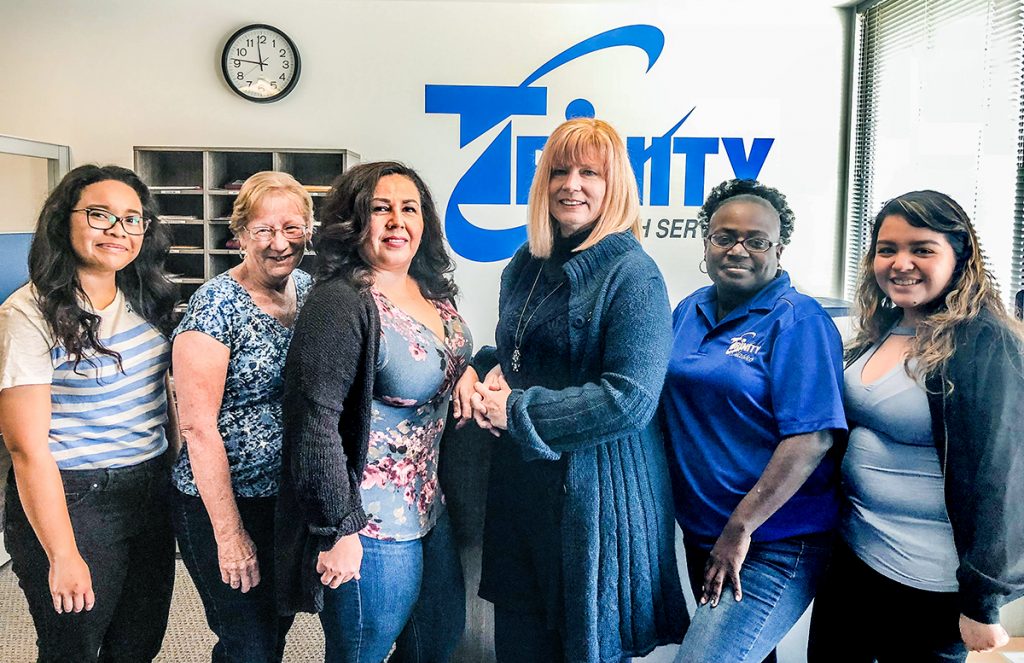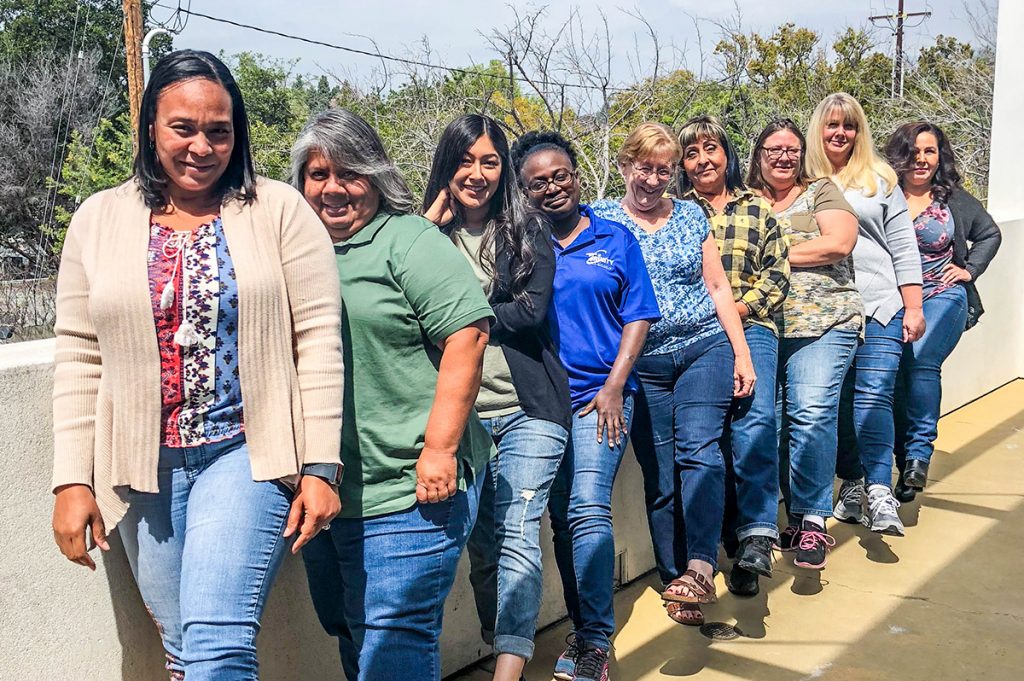

Almost half a million children are in the foster care system in the United States. Fostering is one way to provide safety and stability for them as they wait to be placed with a permanent family through adoption. As such, becoming a foster parent can be rewarding for you and the child as you help them develop emotionally, physically, and socially. However, the Children’s Bureau reports that children in foster care are often victims of abuse and trauma and cannot remain safely in their homes. Consequently, this can create a challenge as a child who has faced abuse needs extra attention as they recover from the trauma they experienced.
This article will help you learn the basics of fostering a child affected by abuse and offer tips on how to work through some of the situations that come with this type of care:
1. Be patient
Patience is essential for any parenting situation, but even more so when fostering a child who has experienced the trauma of abuse. A study by the Children and Youth Services Review revealed that foster children are more likely to develop problems in their social-emotional functioning. This can manifest through physical aggression, depression, or lack of impulse control.
These behaviors can be frustrating for foster parents, but it’s crucial to remain kind and understanding as they work through their experiences and emotions. You can do this by practicing positive reinforcement and actively listening to their needs without coddling.
2. Provide therapy
Therapy can be an important part of the healing process. There are plenty of options for therapy, but one of the most common is grief counseling. An article on grief counseling by Maryville University explains that it can be a way for children to understand loss. It can help them cope with the complex emotions that can arise in the aftermath of trauma, including the permanent loss of their biological family and daily routines. Counseling techniques such as play and art help children understand and work through the complicated and confusing emotions they may feel as they transition to their new lives.
It is important to note that the methods most appropriate for a particular child will depend on various factors, including the child’s developmental level. Because of this, it is important to work with a mental health professional to determine the best course of treatment. Each child is assessed for their mental health needs upon placement at Trinity Youth Services, is assigned a team, and the youth is encouraged to create goals for their progress.
3. Establish a routine
A predictable routine can give children a sense of structure and stability and help them feel more in control of their environment. Routines help them feel safe as they settle into their new environment because they know what they can expect to happen throughout their day.
Although establishing routines can be tricky with busy schedules, it’s vital to remember that things like sleep, exercise, and meals are all crucial to their adjustment period. To start a routine, you can establish rules regarding meals and snacks, create a bedtime schedule, and plan meals for the week together.
4. Take care of yourself
When you foster a child who has been affected by abuse, it’s important to remember that it’s not your job to fix them. Your job is to give them a safe space and provide them with love and understanding so they can begin healing. As you do so, you also need to remember that you have limits and needs of your own.
Fostering a trauma-affected child can be emotionally and physically demanding. A study published by the National Library of Medicine notes that foster parents experience heightened parenting stress and a lack of emotional support. To this end, consider setting boundaries, finding help from other foster parents or therapists, and taking time for self-care.
Abusive situations can be incredibly traumatic for children in foster care. With empathy, compassion, and support, these children can heal and thrive in your home.
Anna Foster is a freelance writer specializing in education and childcare. She is an advocate for fostering and adoption. In her spare time, she volunteers for her local shelter and other charitable causes.


The month of April marks National Child Abuse Prevention Month, when communities work together to promote the social and emotional well-being of children and families. Child abuse and neglect are widespread issues that everyone has the power to prevent, whether it’s volunteering, donating to organizations that support children or helping a family in need, everyone can help children and families create a better future.
Since 1966, Trinity Youth Services has worked to improve the lives of children who have been affected by abuse, neglect and abandonment. Trinity provides quality support including foster care and adoption services, residential therapeutic programs and mental health programs to children in Southern California and Houston, Texas.

Throughout the month, Trinity staff have shown their continued support by wearing blue-ribbon pins, the national symbol for Child Abuse Prevention. On Friday, April 6, they joined with individuals and organizations across the nation in “Wear Blue For Kids Day,” by wearing blue shirts and blue jeans to show their commitment to preventing child abuse and supporting children in need.
 Marie Maghuyop, AmeriCorps VIP Fellow
Marie Maghuyop, AmeriCorps VIP Fellow
Marie is serving as an AmeriCorps VIP (Volunteer Infrastructure Project) Fellow. Her main goal as a VIP Fellow is to expand the volunteer programs at the Foundation and develop an effective, sustainable volunteer infrastructure. She creates content for social media, engages with volunteers and supports the Foundation team with coordinating events and volunteer opportunities. Marie has earned two associate’s degrees from San Bernardino Valley College and a bachelor’s degree in Communication Studies from California State University, Fullerton. She has always been driven to do meaningful work by helping others and is excited to inspire volunteerism in the community. In her free time, she enjoys going to Disneyland, writing, playing ukulele and board games, and dancing.

 Abused and neglected children face trauma beyond what we can physically see. Studies show that the psychological effects of physical and emotional trauma can be long-lasting and can even lead to suicide if left untreated.
Abused and neglected children face trauma beyond what we can physically see. Studies show that the psychological effects of physical and emotional trauma can be long-lasting and can even lead to suicide if left untreated.
Trinity Youth Services is dedicated to the health and well-being of abused and neglected children. Our passion is improving the lives of children who have endured abuse, and to help them transcend the harrowing statistics that often plague them.
According to the Children’s Bureau, some effects of child abuse can include depression and anxiety, which can lead to smoking, alcoholism, drug use or overeating. Long-term physical health problems, such as cancer and obesity also threaten this vulnerable population of children. The physical remnants of abuse and neglect often heal, but very often, the psychological effects require specialized attention.
To combat this devastating, widespread issue, Trinity Youth Services has contracted with the Los Angeles County Department of Mental Health, the San Bernardino County Department of Behavioral Health and the Riverside County Behavioral Health System to provide an array of mental health services. Answering the call of children in crisis, Trinity Youth Services offers individual and family therapy, medication support, therapeutic behavioral services and in-home behavioral support with an emphasis on trauma-informed interventions.
At Trinity Youth Services, each foster child is given specific tools they need to thrive mentally, physically and emotionally from caring, trusted and experienced mental health experts. Every foster child receives a comprehensive assessment upon admission into our resource homes and for those who meet criteria, receive individual therapy on a weekly basis by a qualified therapist.
Trinity Youth Services also offers three other evidence-based practices focused on complex mental health issues. Seeking safety is a trauma-informed model of therapy that addresses alternative functional coping skills. Trauma focused cognitive behavior therapy addresses the bio-psychosocial needs of the child in an individual and conjoint setting. Managing and adapting practice is an approach to therapy that uses multiple treatment modalities that are implemented on an individualized basis.
In addition to our mental health programs and treatment modalities, Trinity Youth Services practices trauma-informed intervention to enable foster children to feel respected, informed and connected with an aim to instill hope and empowerment in a sensitive non-judgmental manner. With over 60,000 children served since its inception, Trinity Youth Services continues to create and maintain supportive programs for foster youth that will help them increase their confidence, essential social skills and achieve a positive self-identity.
Why do foster children need ongoing mental health support?
According to Psych Central, some foster children may exhibit behavioral disorders and learning challenges. These youth need special mental health services because they need to feel confident about themselves, feel respected, safe and understood. They need to learn how to cope after the trauma they have experience in a way that isn’t harmful.
Trinity Youth Services’ mental health services help create a better future for foster children because they assist them in creating an understanding of what they went through, develop their self-esteem and help them learn to cope in positive ways by building hope for their future and trust within their relationships.
Trinity also conducts child and family team meetings, at which the child and their resource family are encouraged to be the experts in their own lives. It is a team approach to helping foster children that includes social workers, therapists, resource parents and others involved in their well-being. The foster child is given a voice and a choice in their treatment and to recognize what they are good at and what they need in order to thrive.
Trinity Youth Services also employs interventions, which have been shown to be very effective in decreasing emotional or behavioral problems, lessening depression and anxiety, improving physical health and healthy attachments. These mental health interventions can also improve a foster child’s skill development, education and employment.
At Trinity Youth Services, we take pride in our commitment to help children and families create a better future. It all starts with supporting our foster youth and helping them live successful, fulfilled lives.
Click here for more information about Trinity Youth Services programs.
 Jackie Jakob, Foster Care and Adoptions Director
Jackie Jakob, Foster Care and Adoptions Director
Having over 20 years’ experience, Jackie currently oversees Trinity Youth Services’ operations of foster care and adoptions programs throughout Southern California and in Houston, Texas. She received a bachelor’s degree in law and society from University of California Santa Barbara, a master’s degree in social work from California State University Long Beach and recently became a Licensed Clinical Social Worker. Jackie enjoys spending time with her husband and two children attending various baseball, softball and judo meets. She is on the parent board for a judo dojo and is one of the troop leaders for her daughter’s Girl Scout troop. Additionally, she really enjoys running half marathons and aims to run 4 to 5 races each year.
Tel: 909.825.5588 | Email: info@trinityys.org




